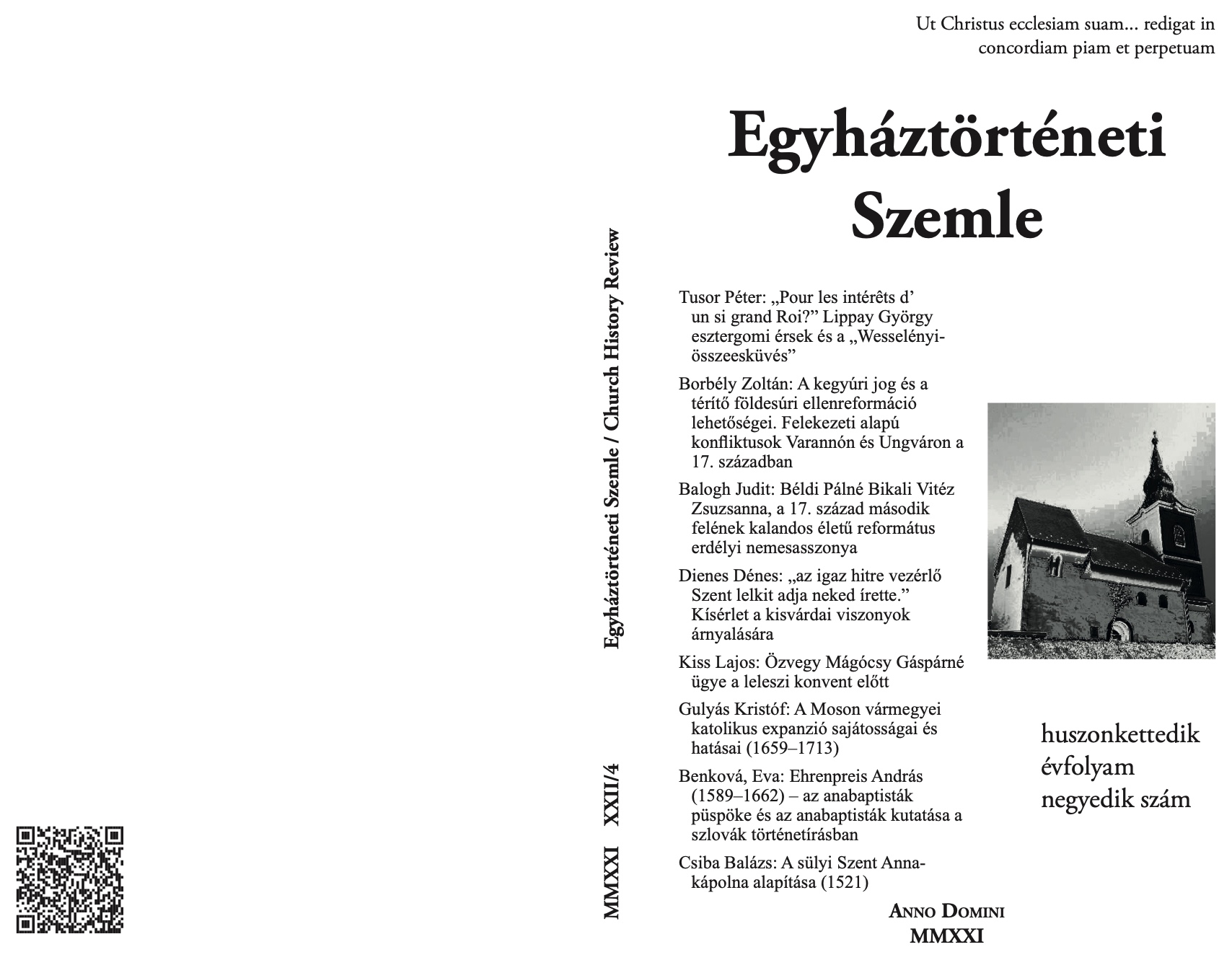Béldi Pálné Bikali Vitéz Zsuzsanna, the adventurous Reformed noblewoman of Transylvania in the second half of the 17th century
DOI:
https://doi.org/10.54231/ETSZEMLE.2021.4.3Keywords:
women’s history, Szeklers, Principality of Transylvania, Reformation, Zsuzsanna VitézAbstract
The study discusses the career of a 17th century Transylvanian Reformed noblewoman. Zsuzsanna Vitéz lived her adult life under the Transylvanian principality of Mihály Apafi, and she was the wife of one of the greatest landowners of the period, the general of the country, Pál Belda of Uzon. The paper shows how, according to sources, a smart and creative woman tried to fit into the roles of women dictated by age and how she expanded this framework due to her specific life situation. The noblewomen of Hungary and Transylvania in the early modern age were often forced to violate the norms due to frequent wars, and it was often necessary for them to take over classical male. Due to her husband’s frequent absences, Zsuzsanna was also forced to negotiate and correspond with men in order to manage the huge estates, and even to sue. By analyzing the noble woman’s correspondence and examining the memoirs and correspondence about the age, I argue that a woman who appears to break norms cannot really be considered a woman seeking independence. Performing well as a wife by haring the fate of the husband, fully following his wishes led to Zsuzsanna’s failure in the socially assigned role of mother. In her daily life, she embraced the goals of her husband, who was often away, so much that the struggles to maintain a huge estate and the commitment to solidarity with her husband made her an unusually strong, creative, and independent woman in the eyes of her contemporaries.
Downloads
Downloads
Published
Conference Proceedings Volume
Section
Categories
License
Copyright (c) 2021 Judit Balogh (Author)

This work is licensed under a Creative Commons Attribution 4.0 International License.
The author(s) reserve the copyright of their work.
The Church History Review does not restrict the rights of authors to place their manuscripts or manuscript versions on preprint servers or other hosting. This applies generally to the following formats.
- Submitted version
- Accepted version (manuscript accepted by the author)
- Published version (Version of Record)









